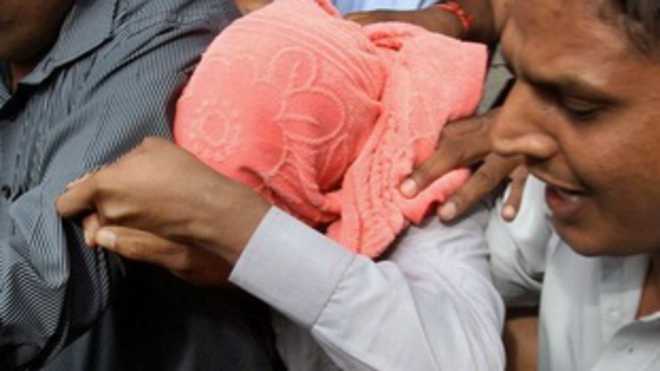Aditi Tandon
Tribune News Service
New Delhi, February 25
The government’s plan to treat juveniles of 16 to 18 years of age accused of heinous offences as adults suffered a huge setback today with the parliamentary committee examining the related Bill rejecting the move. The committee said children of this age were vulnerable and needed greater protection rather than retributive justice.
Disagreeing with the Ministry of Women and Child Development’s reliance on crime statistics to repeal the existing Juvenile Justice Act, 2000, which provides for juvenile offenders to be tried by Juvenile Justice Boards instead of the adult system, the committee said, “The existing system was reformative and restorative and need not be changed.”
Under the current law, even juveniles accused of brutal crimes like the Delhi gangrape can at most be sent to a remand home for three years.
The ministry under Maneka Gandhi mooted repeal of the current Act to provide for a new bill which allows adult treatment of juvenile offenders accused of serious crimes.
The ministry’s justification is, “Increase in crimes committed by children aged 16 to 18 years evidences the fact that the current law is ill-equipped to tackle these child offenders.”
Accordingly, in the Lok Sabha on August 12 last, the ministry introduced the new Juvenile Justice Bill, 2014, which gives Juvenile Justice Boards the power to consider the physical and mental capacity of the child offender and refer him to an adult children’s court for trial if it is convinced of his culpability. The Bill says if convicted such children would be sent to a place of safety till 21 years and later to a jail if evidence shows they have not improved.
Children’s courts are sessions courts authorised to try heinous offences and were established to try people accused of offences against children under the Protection of Children from Sexual Offences Act, 2012.
The new Bill bars award of death penalty or life sentence to juveniles.
Though the ministry reasoned with the committee that the flexibility to try juveniles as adults was needed as children aged 16 to 18 arrested for heinous crimes had been rising, the committee remained unimpressed as 38 institutions, including child rights NGOs and National Commission for Protection of Child Rights, rooted for the existing law.
The ministry cited National Crime Records Bureau data which shows from 531 murders in 2002, juveniles were accused of 1,007 murders in 2013. In 2010, juveniles were accused in 651 rapes as against 1,388 in 2013.
The committee while rejecting the ministry’s reliance on the NCRB data said the data only reflected FIRs and not actual convictions. It said incidence of juvenile crime (juvenile crime to total crimes) rose from 0.9 per cent in 1999 to 2.6 per cent in 2013 and remained stable throughout.
Another argument of the panel headed by BJP leader JP Nadda (replaced after becoming Health Minister last November) was that juvenile crimes were only following the overall patterns of rising crimes against women by adults.
“The existing system is not only reformative and rehabilitative, but also recognises the fact that 16 to 18-year olds are in an extremely sensitive age and require greater protection. Hence, there is no need to subject them to a different or adult juvenile system,” the panel concluded in its report to Parliament today.
Box: The reason
Disagreeing with the Ministry of Women and Child Development’s reliance on crime statistics to repeal the existing Juvenile Justice Act, the parliamentary committee said children of this age were vulnerable and needed greater protection rather than retributive justice
The committee said the data only reflected FIRs and not actual convictions. Incidence of juvenile crime (juvenile crime to total crimes) rose from 0.9 per cent in 1999 to 2.6 per cent in 2013 and remained stable throughout
Calls to try juveniles grew after the involvement of a juvenile in the brutal Delhi gangrape in December 2012, the Mumbai Shakti Mills rape in July 2013 and the Guwahati rape case in September 2013
Unlock Exclusive Insights with The Tribune Premium
Take your experience further with Premium access.
Thought-provoking Opinions, Expert Analysis, In-depth Insights and other Member Only Benefits
Already a Member? Sign In Now










